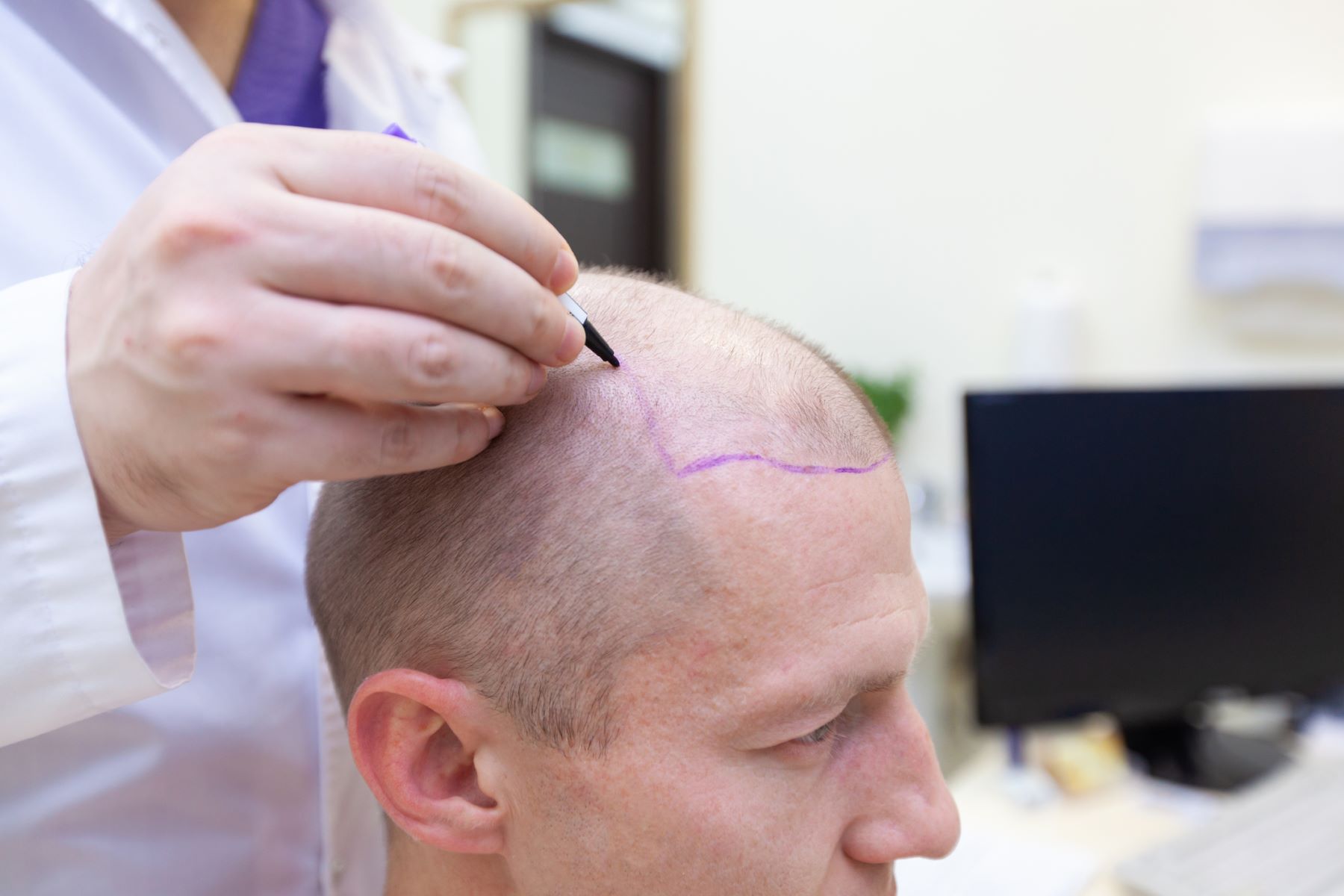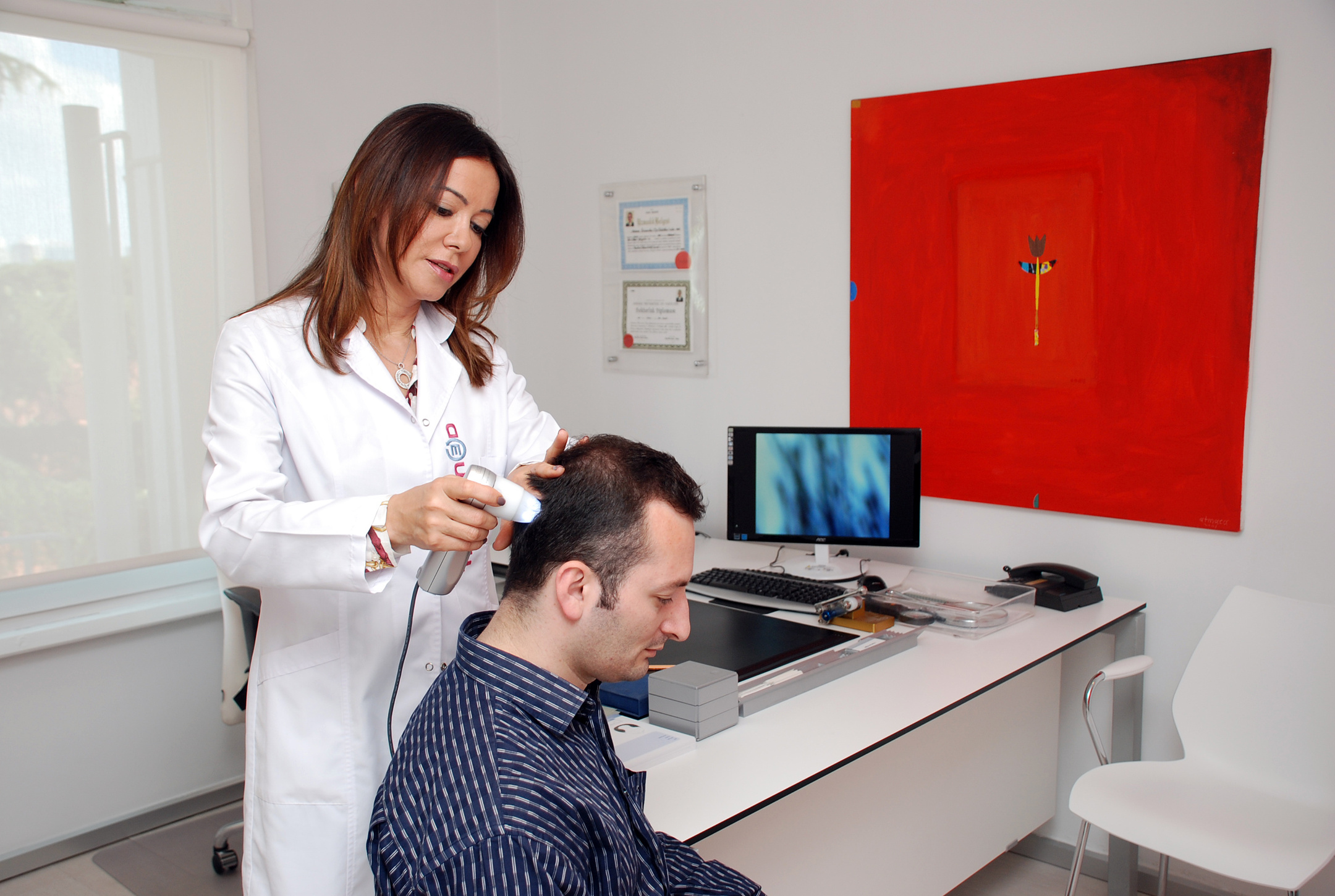Stress is something that we all experience at some point, whether due to work, personal life, or other external factors. It’s not uncommon for people to wonder about the impact stress has on the body, and one of the most noticeable effects might just be hair loss. If you’re struggling with thinning or shedding hair, you might be curious: Can stress really cause hair to fall out? While this question has intrigued many, experts, including a Hair Specialist Doctor in Dubai, say that the connection between stress and hair loss is indeed real—and it’s more common than you might think. In this article, we’ll dive deep into the science of stress and its effects on your hair, exploring how stress could be contributing to your hair woes.

The Science Behind Stress and Hair Loss
To understand how stress leads to hair loss, it’s important to know how hair growth works. Each strand of hair goes through a growth cycle with three main stages: the anagen (growth) phase, the catagen (resting) phase, and the telogen (shedding) phase. Stress can affect this cycle, particularly the transition from the growth phase to the shedding phase. When you’re under extreme or prolonged stress, your body can enter a state where it disrupts the regular hair growth process.
Stress can cause hair loss in several ways, with the most common being telogen effluvium, a condition where a significant number of hair follicles prematurely enter the shedding phase. As a result, you may notice a sudden increase in hair fall, especially when washing or brushing your hair. This type of hair loss is typically temporary, and with proper stress management, hair growth may resume over time.
How Stress Affects Your Hormones
One of the main ways stress impacts hair loss is through the release of stress hormones, like cortisol. When you’re stressed, your body produces more cortisol, a hormone designed to help you manage the “fight or flight” response. However, when cortisol levels remain high for extended periods, it can interfere with the normal function of your hair follicles.
High cortisol levels can also affect other hormones in your body that play a role in hair growth, including estrogen and testosterone. This hormonal imbalance can contribute to hair thinning and shedding, making it more noticeable over time. In some cases, stress can even trigger an underlying condition like alopecia areata, an autoimmune disorder that causes your immune system to attack your hair follicles, resulting in patchy hair loss.
Other Stress-Related Conditions Linked to Hair Loss
In addition to telogen effluvium, there are several other stress-related conditions that could lead to hair loss. These include:
-
Alopecia Areata: As mentioned earlier, stress may trigger autoimmune conditions such as alopecia areata, where the body’s immune system attacks hair follicles, causing patches of hair loss.
-
Trichotillomania: This is a condition in which a person feels a compulsion to pull out their own hair, often in response to stress or anxiety. This repetitive action can result in noticeable hair thinning and bald patches.
-
Scalp Inflammation: Chronic stress can lead to inflammation in the scalp, affecting the hair follicles and potentially leading to hair thinning and loss. Stress can also exacerbate conditions like dandruff and seborrheic dermatitis, which further contribute to scalp health issues and hair shedding.
Managing Stress to Prevent Hair Loss
The good news is that stress-induced hair loss is often temporary and can be reversed once you manage the stress effectively. Here are some tips to help reduce stress and keep your hair healthy:
-
Exercise regularly: Physical activity helps lower cortisol levels and improves blood circulation, which is beneficial for hair growth.
-
Practice mindfulness and relaxation techniques: Meditation, deep breathing exercises, and yoga can significantly reduce stress and help improve mental clarity.
-
Get enough sleep: Proper rest is essential for managing stress and promoting overall health, including hair health.
-
Eat a balanced diet: A nutritious diet rich in vitamins and minerals (especially vitamins A, C, D, and E, along with zinc and iron) supports healthy hair growth and overall well-being.
-
Seek professional support: If stress is overwhelming or affecting your health significantly, consider talking to a mental health professional to work through the underlying causes of stress.

When to Seek Professional Help
If you notice that your hair is thinning or falling out excessively, it’s important to seek advice from a Hair Specialist Doctor Dubai or elsewhere. While stress is a common culprit, hair loss can also be caused by other underlying health conditions. A professional can help assess your situation, provide a thorough evaluation, and recommend the best course of action for restoring your hair.
Final Thoughts
Stress-induced hair loss can be alarming, but understanding the connection between stress and hair health is the first step in managing the issue. By focusing on stress management techniques, maintaining a healthy lifestyle, and seeking professional advice when needed, you can regain control of your hair and overall well-being. Don’t let stress hold you back—take the steps necessary to reduce its impact and encourage your hair to thrive once again.



